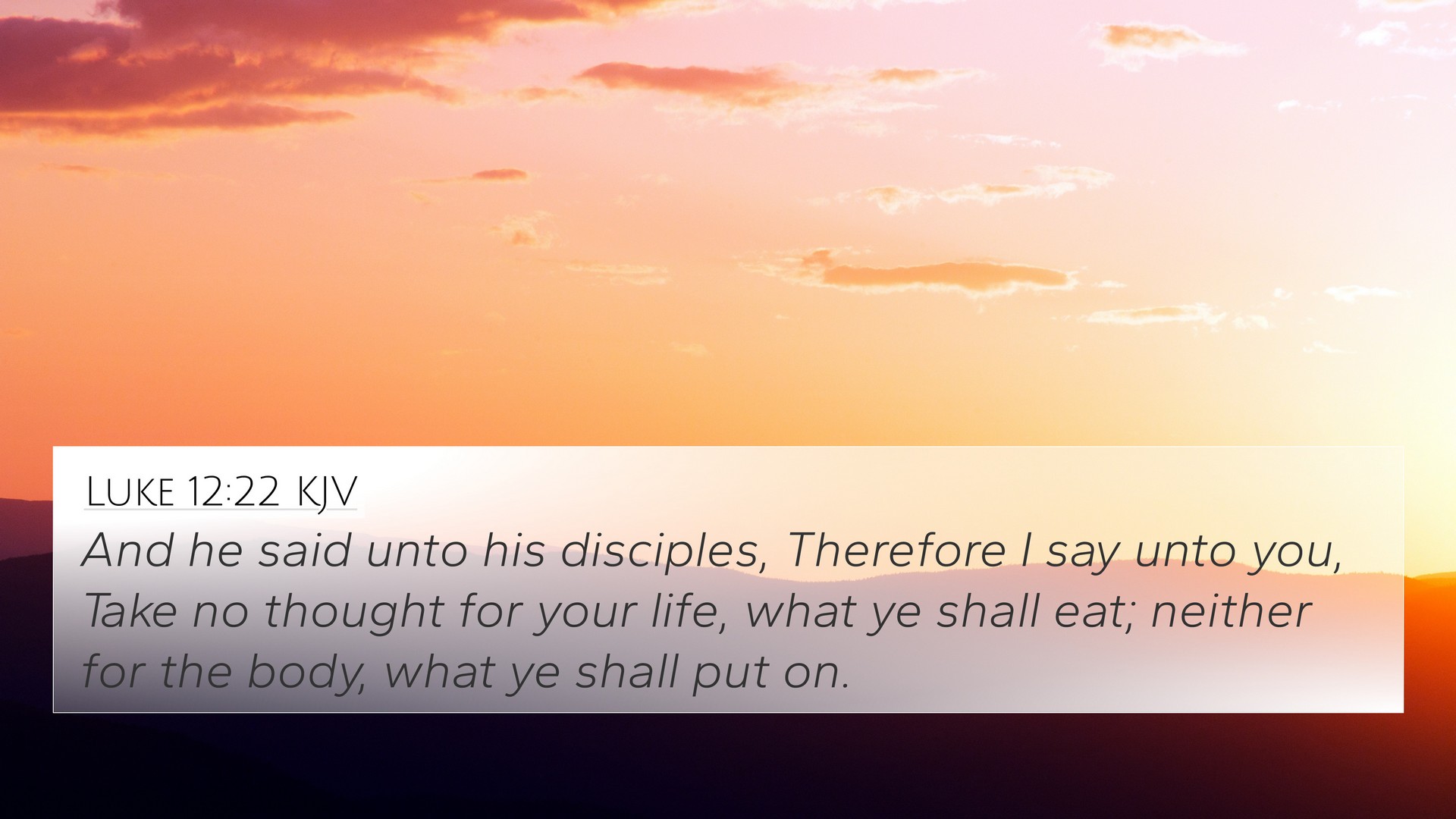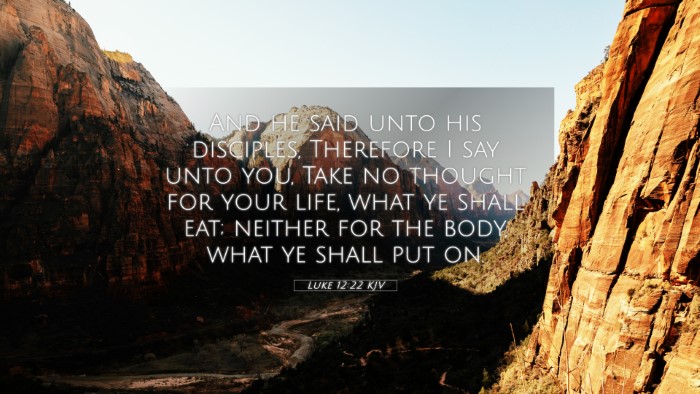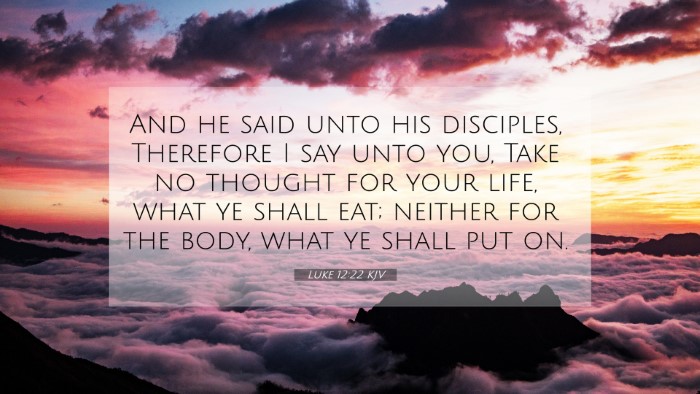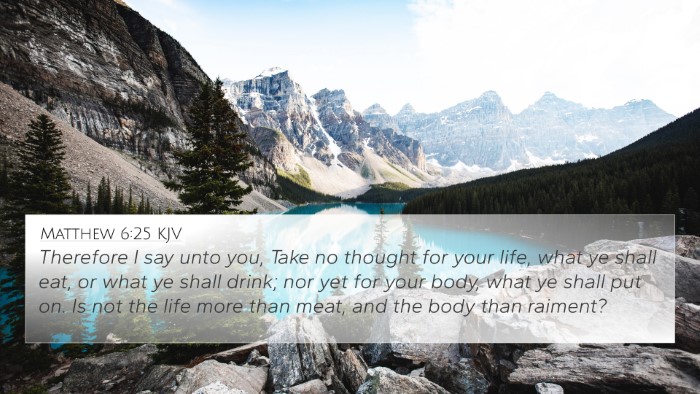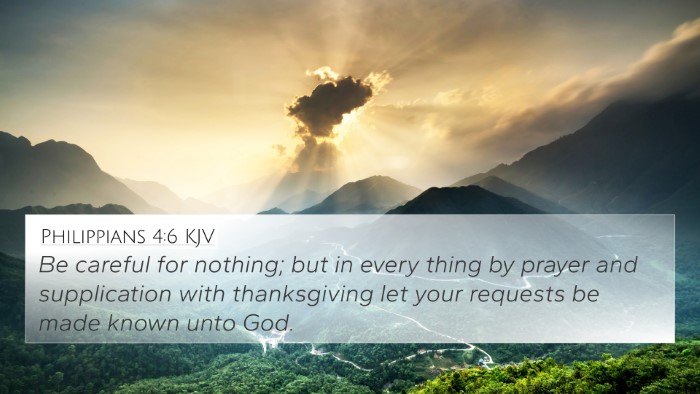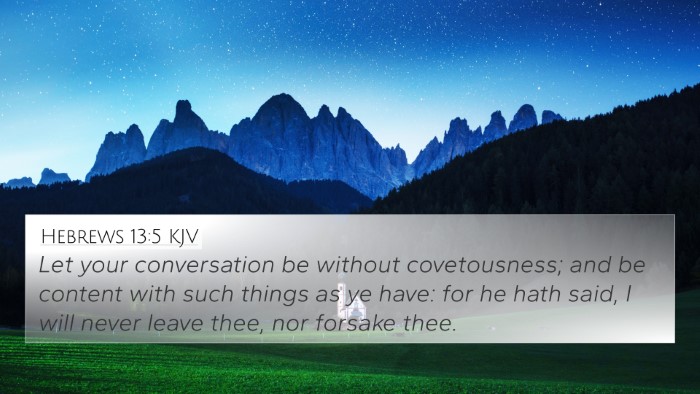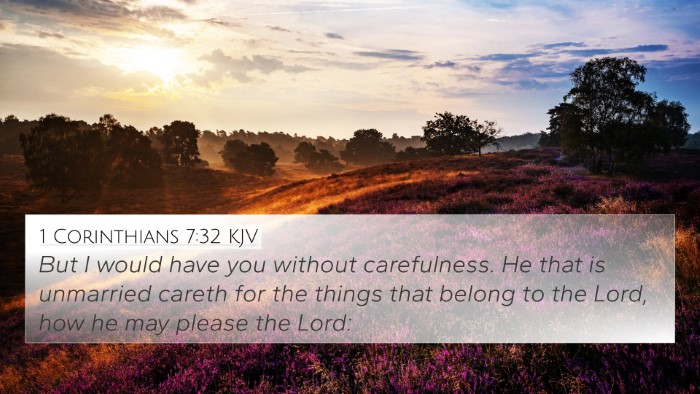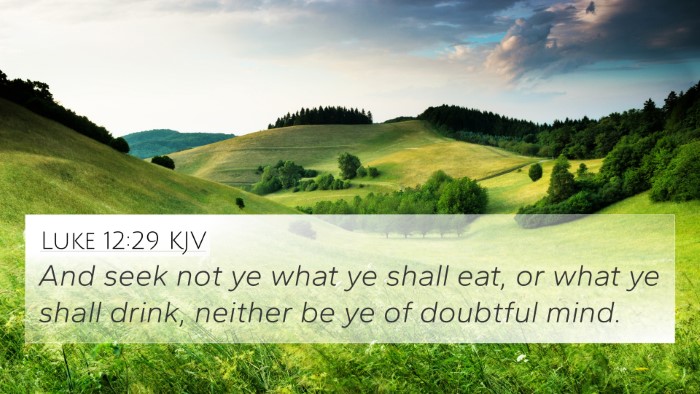Understanding Luke 12:22
Luke 12:22 states: "And He said to His disciples, 'Therefore I tell you, do not be anxious about your life, what you will eat, nor about your body, what you will put on.'" This verse speaks to the theme of trust in God’s provision and the futility of anxiety concerning material needs. Through the insights of various commentaries, we can develop a deeper understanding of this scripture.
Verse Summary
This verse is part of Jesus’ teaching on the importance of faith over worry. He directly addresses His disciples, emphasizing that their lives should not be consumed with earthly concerns such as food and clothing. Instead, He encourages them to trust in God’s care and provision.
Commentary Insights
-
Matthew Henry's Commentary:
Henry emphasizes that anxiety reveals a lack of trust in God. He asserts that life is more than sustenance and that God, who provides for the birds and lilies, will surely provide for His children. This affirmation of God’s care should free believers from worldly worries.
-
Albert Barnes' Notes:
Barnes notes that this teaching is a call to faith and a shift in focus from earthly provisions to spiritual richness. He explains that the phrase “do not be anxious” implies a command against worry, pointing out that anxiety does not add to one's life or capabilities—only faith can secure what is truly needed.
-
Adam Clarke's Commentary:
Clarke elaborates on the nature of life and body, interpreting them as aspects of man that should not be fraught with worry. He underscores the idea that the faithful should prioritize their spiritual lives. Clarke also connects this teaching to the broader theme of divine providence.
Bible Verse Cross-References
Luke 12:22 touches upon many Biblical themes and can be cross-referenced with the following verses:
- Matthew 6:25-34 - Jesus teaches about not worrying and trusting God for daily needs.
- Philippians 4:6-7 - Paul encourages believers to present their requests to God instead of being anxious.
- 1 Peter 5:7 - This verse calls believers to cast their anxieties on God because He cares for them.
- Psalm 55:22 - A psalmist advises to cast burdens on the Lord, assuring that He will sustain them.
- Matthew 10:29-31 - Jesus mentions that God knows the needs of His creation, emphasizing His care.
- John 14:1 - Jesus urges His followers not to let their hearts be troubled but to trust in Him.
- Isaiah 41:10 - God promises to strengthen and help those who believe, dismissing fears.
Thematic Bible Verse Connections
In analyzing Luke 12:22, we find strong thematic connections among various scriptures. This verse reflects a broader Biblical narrative concerning God's provision:
- The theme of reliance on God highlights the connection with the Old Testament, particularly in the context of Israel's reliance on God during their wilderness wanderings (Exodus 16:4).
- The teaching aligns with the Sermon on the Mount, pointing to a consistent biblical message about priorities in life (Matthew 6:33).
- The assurance offered through these scriptures reminds believers of the greater purpose than mere physical survival (John 6:27).
- Linking this verse with 2 Corinthians 9:8 contextualizes God's ability to provide not just adequately, but abundantly.
Comparative Bible Verse Analysis
When we conduct a comparative Bible verse analysis, we see that many scriptural teachings promote a consistent message regarding faith and divine provision:
- Comparing Luke 12:22 with Proverbs 3:5-6 reveals the idea of trusting in the Lord rather than leaning on one’s understanding.
- Cross-referencing Philippians 4:19 asserts the belief that God will supply every need according to His riches in glory.
- The connections between Matthew 6:33 and Luke 12:22 reinforce the call for a heart focused on spiritual pursuits over earthly concerns.
Conclusion
In conclusion, Luke 12:22 implores believers to avoid anxiety about life’s needs, encouraging trust in God’s provision. Through a comprehensive examination using various public domain commentaries, cross-references, and thematic connections, the overarching biblical principle becomes clear: God cares deeply for His creation and invites us to rest in His assurance instead of succumbing to worry.
